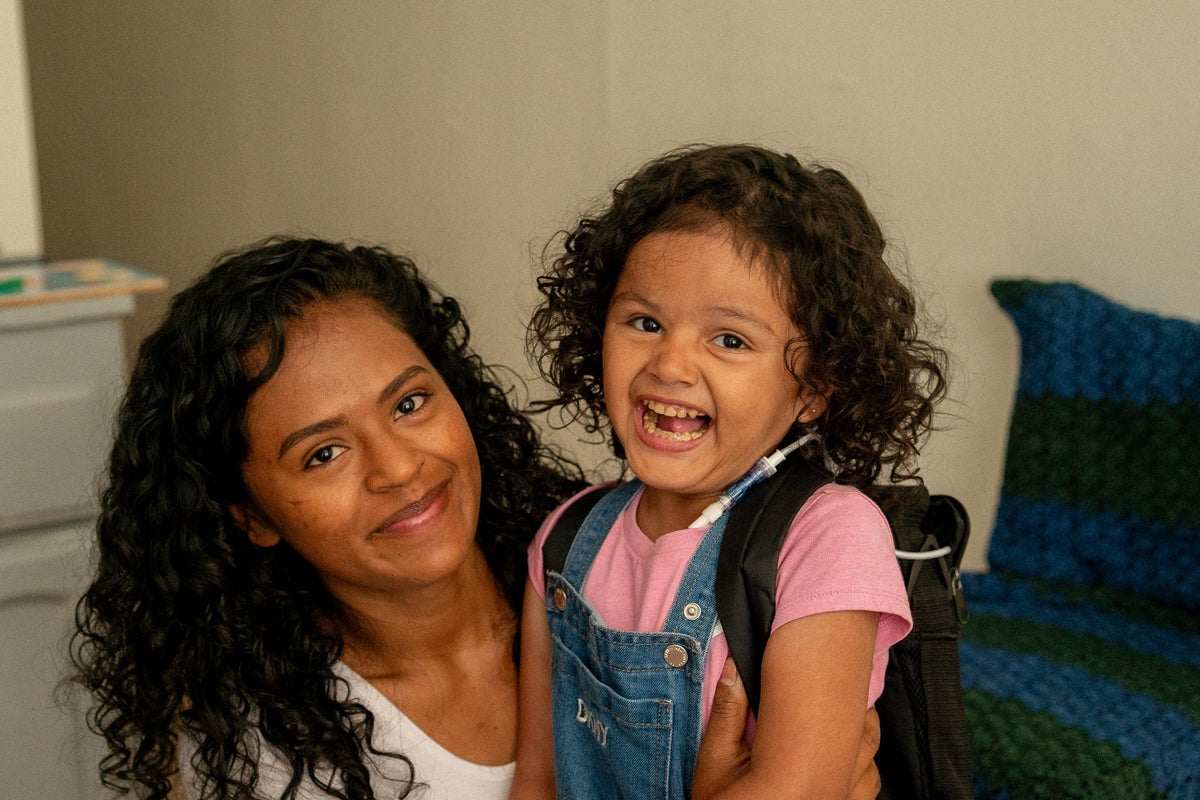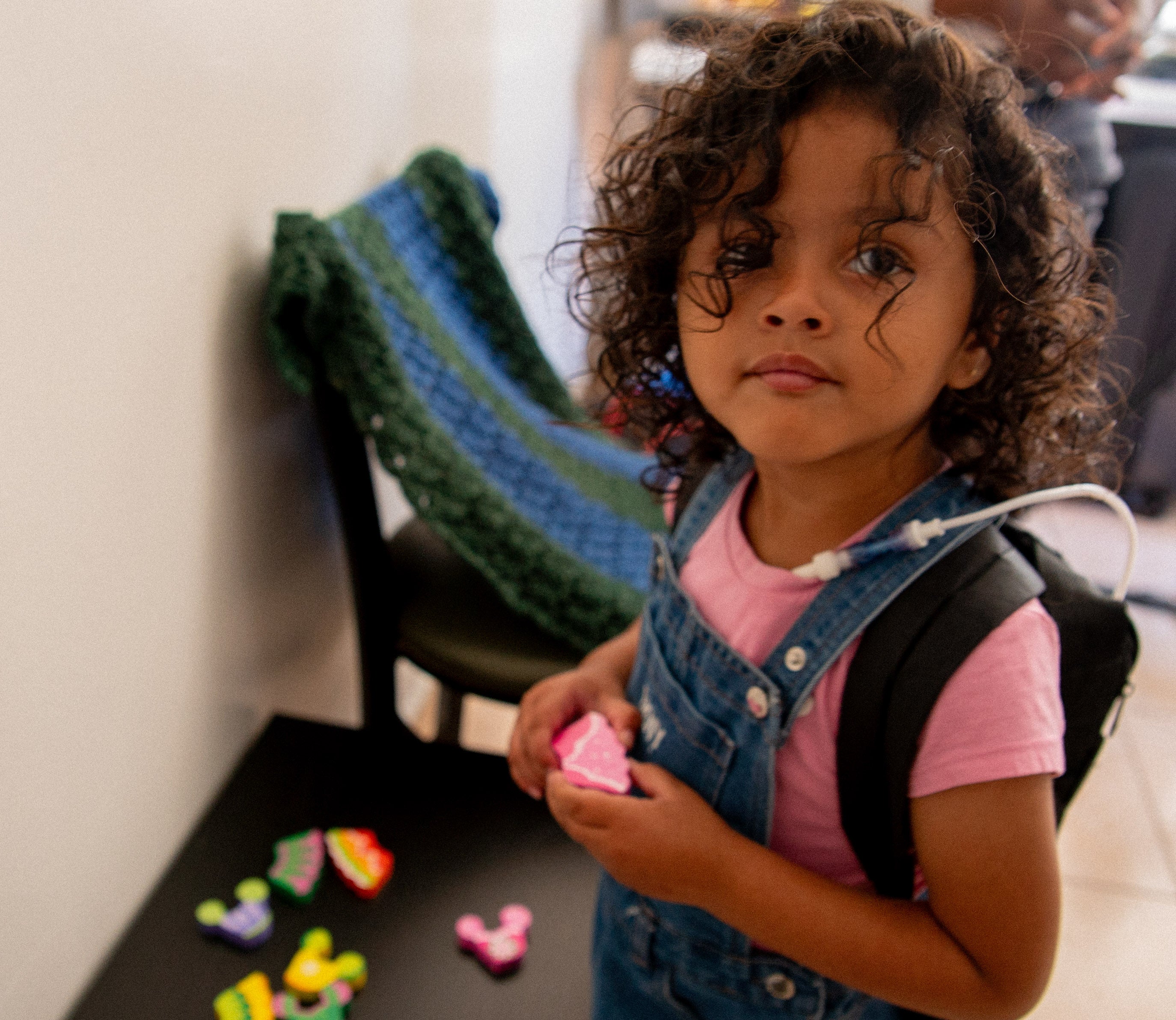
The Department of Homeland Security has denied that a critically ill 4-year-old girl is being actively deported to Mexico after the family launched a campaign about their case.
Lawyers acting on behalf of Deysi Vargas and her daughter Sofia said that the family’s humanitarian parole, granted in July 2023, was prematurely revoked by the Trump administration on April 11.
“They received a subsequent notice weeks later, and a third notice in May verifying that they are no longer in lawful status and are now vulnerable to deportation,” Gina Amato, directing attorney of the Immigrants Rights Project at Public Counsel, said at a press conference Wednesday. “The notices also ordered the family to leave the United States immediately.”
The family and her doctor said Sofia “could die within days” if treatment for a rare condition is paused.
But the department said that the family’s application for humanitarian parole was “still being considered” in a statement to The Independent.
“Any reporting that Vargas and her family are actively being deported are FALSE,” the official said. “This family applied with USCIS for humanitarian parole on May 14, 2025, and the application is still being considered.”
Amato said that lawyers wrote to immigration officials soon after they received the case, but heard nothing from the Trump administration. Lawyers filed a new application for humanitarian parole in May and still had not heard back, Amato said.
“We did our best to give them the benefit of the doubt and let them know that we think they made an error, that we have a 4-year-old child whose life is in danger and we asked them to reconsider their decision to terminate humanitarian parole,” Amato said. “We have not heard anything back. We subsequently filed new applications for humanitarian parole, and similarly, have not received a response.”
The family was granted temporary humanitarian permission to enter the U.S. from her home country of Mexico in 2023 after Sofia urgently needed treatment for short bowel syndrome, a rare condition that stops her from absorbing nutrients in food. The treatment she required was not available in Mexico and she was quickly deteriorating, her lawyers said.
Sofia’s treatment, which requires being hooked to an intravenous feeding system for 14 hours at night, can only be administered and overseen by a specialist team at Children’s Hospital Los Angeles.
.jpg)
“This is a textbook example of medical need,” the family’s attorney Rebecca Brown said Tuesday. “This child will die and there’s no sense for that to happen. It would just be a cruel sacrifice.”
The family is currently living in Bakersfield, California, just over 100 miles north of Los Angeles and came to the U.S. legally in 2023 after signing up to the Biden administration’s CBP One app.
They received an appointment with border agents in Tijuana to receive two-year protection from deportation and were swiftly taken to a hospital in San Diego for urgent treatment.
A year later, Sofia was referred to the Children’s Hospital Los Angeles, which has one of the highest-ranked programs for gastroenterology in the U.S.
Under their care, by September 2024, Sofia was discharged and could receive treatment in the comfort of her home. Meanwhile, her parents were working hard to hold down odd jobs in Bakersfield.

Sofia’s care is still gruelling. In addition to the 14 hours a night hooked up to the IV, Vargas has to administer medication that goes into her daughter’s stomach through a gastric tube four times a day. At preschool, a school nurse has to administer nutrition daily.
ICE arrests NYC high schooler in immigration courthouse who was seeking asylum
Critically ill Mexican girl, 4, could die in days if deported under Trump order
Judge says US effort to deport Mahmoud Khalil on foreign policy grounds is likely unconstitutional
Grateful Chrisleys’ daughter awaits dad at prison after reality TV couple’s pardon







